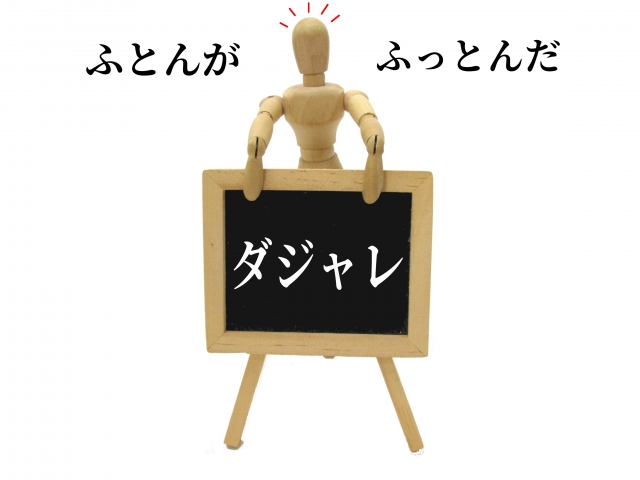I love a bad joke. I do not mean a joke that is in bad taste nor a joke that injures anyone’s feelings. What I mean is a joke that, when told, the listeners would groan, shake their heads or laugh at how terrible the joke was. These are usually puns or some wordplay and, it’s interesting to discover something similar in Japan.
When I was younger, they were called for what they are, a bad joke. Nowadays, they have gained the title “dad jokes” and are similar to the Japanese oyaji gyagu.
I think I’m good at making bad English jokes. Unfortunately, Masami is my audience and is not a fan of my hilarious jokes so, I’m getting a bit rusty. Many times have I created some beautiful wordplay for it to only disappoint Masami. Telling a bad joke and then explaining why it’s a joke isn’t fun for anyone involved! Surprisingly, Masami has started making puns, too!
Playing with Japanese Words
One humid day I was talking to two students in English about how humid it was. They could not remember the word for humid, so I gave clues:
“How do you say insect in Japanese?”,
“Mushi.” came the reply. I followed up,
“How do you say hot in Japanese?”,
“Atsui.” the next reply.
“How do you say insect hot in Japanese?”,
“Mushi atsui is humid! Oyaji gyagu!” followed by disapproving laughter and an explanation of oyaji gyagu.
Oronyms – words and phrases
Oyaji gyagu exists in English and are known as oronyms. Oronyms are words or phrases that sound similar but have different spellings and meanings.
English oyaji gyagu would be: example, egg sample or I scream, ice-cream or four candles, fork handles. I don’t think this wordplay is funny. There are good bad jokes and bad bad jokes, I think oyaji gyagu or oronyms are not even jokes! I’m sorry old man, your a sorry old man.
Other bilingual wordplay
Since living in Japan, I have been exposed to and created some wordplay of my own. If you are a student of either language, see if you can get the joke!
Q. When did Japanese people start eating eggs? A. A long tamago.
Q. Why do Japanese farmers drive tractors? A. No car.
I was delighted when Masami replied to my question, “How do I say, The boy’s nine coconuts in Japanese?”. “Otokonoko no kokonotsu no kokonattsu.”, more of a tongue twister than an oyaji gyagu but that’s another topic.
【あなたの心が伝わるあなただけの英語】
英語でのコミュニケーションをあなたらしい英語で。一人一人のレベル、能力、興味に合った教材や方法での英語レッスンプログラムをオンラインで学べます。

”あなたの英語”でコミュニケートしたい方は、まずは無料カウンセリングをご予約ください。



